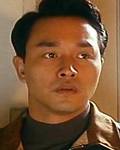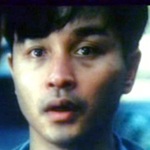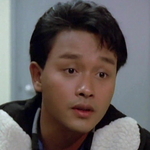| |
| Biography |
| |
| | Cheung Kwok-Wing (张国荣) was a prominent Hong Kong actor and singer, known for his versatile talent and exceptional contributions to the entertainment industry. Born in 1956, in Hong Kong, Cheung grew up in a musically inclined family, with his father being a successful tailor and his mother a renowned soprano singer.
Cheung's journey to stardom began in the late 1970s when he won the New Talent Singing Contest, a popular singing competition in Hong Kong. His distinctive voice and unique style quickly caught the attention of audiences and music producers, leading to a successful music career. Cheung released numerous hit songs and albums throughout the 1980s and 1990s, earning him a huge fan following in Hong Kong and beyond. He was often referred to as the "God of Songs" (歌神) for his exceptional vocal abilities and emotional performances.
In addition to his singing career, Cheung also had a successful acting career. He made his acting debut in the TV series "The Good, The Bad, and The Ugly" (網中人) in 1979, and went on to star in a series of popular films, including "Farewell My Concubine" (霸王别姬), "A Better Tomorrow" (英雄本色), and "Days of Being Wild" (阿飛正傳). Cheung was known for his versatility as an actor, excelling in both dramatic and comedic roles, and earning critical acclaim for his performances. He was often praised for his natural charm, charisma, and ability to portray complex emotions on screen.
Cheung's contributions to the entertainment industry were widely recognized and celebrated. He won numerous awards throughout his career, including the Hong Kong Film Awards for Best Actor for his roles in "Rouge" (胭脂扣), "A Chinese Ghost Story" (倩女幽魂), and "Days of Being Wild" (阿飛正傳). He was also awarded the Golden Horse Awards for Best Actor for his role in "Farewell My Concubine" (霸王别姬), and the Asian Film Awards for Best Actor for his role in "Happy Together" (春光乍洩).
Apart from his achievements on screen and in music, Cheung was also known for his philanthropic work and activism. He was an advocate for LGBTQ+ rights and openly discussed his own struggles with depression and mental health, helping to raise awareness and reduce stigma surrounding these issues in Hong Kong and beyond.
Tragically, Cheung passed away on April 1, 2003, at the age of 46. His death left a deep void in the entertainment industry, and he continues to be remembered as one of Hong Kong's most beloved and talented stars. His legacy lives on through his timeless music and memorable performances, and he remains an icon of the Asian entertainment industry, admired for his talent, creativity, and his enduring impact on Hong Kong cinema and music.
|
|





